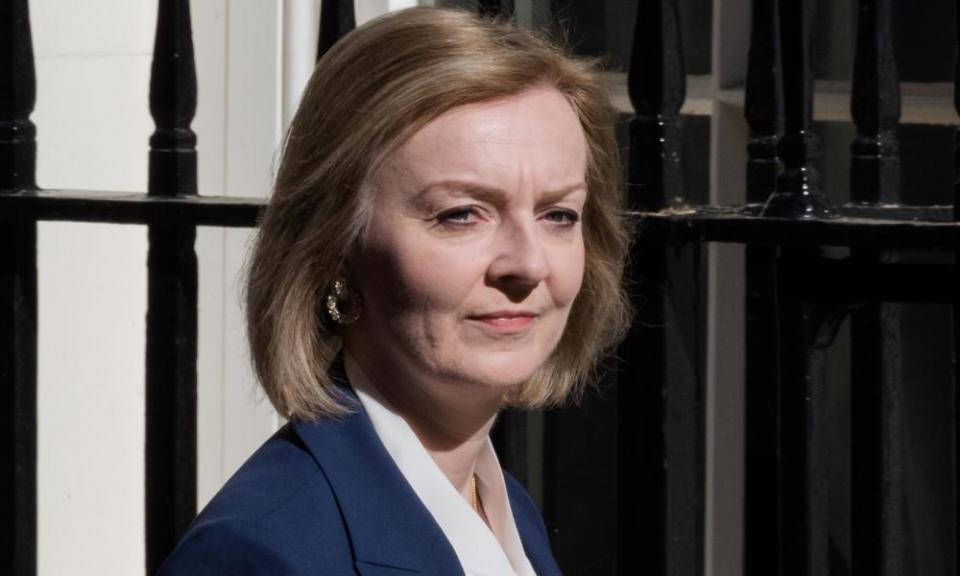UK lawyers still able to work for Russian clients despite new services sanctions

Sanctions on accountancy, consultancy and PR advice will not come into force for several weeks
The UK has said it will ban the export of services including accountancy, consultancy and PR advice to Russia in the latest attempt to isolate the country’s economy after the invasion of Ukraine – but lawyers will still be able to service Russian clients.
The foreign secretary, Liz Truss, announced the “ban on services exports to Russia” in a press release on Wednesday. It is thought that the measures will not take effect for several weeks.
Russian oligarchs, many of whom own significant assets in London and the UK, have in the past employed a vast array of British accountants, consultants and public relations advisers to carry out legally required reporting duties as well as lobbying and managing their reputations.
Related: EU to unveil Russian oil sanctions as evacuees recall Azovstal horror
The UK is one of the world’s leading providers of professional services such as accounting. The Foreign Office said British firms account for about 10% of Russian imports in accounting, management consultancy and PR advice.
However, any ban would for the most part formalise an exodus by big professional services companies that was completed weeks ago. The “big four” accountants that dominate the sector globally – Deloitte, EY, KPMG and PwC – had by 7 March all announced they would exit Russia, while other services companies have ditched wealthy Russian clients in part because of concerns for their own reputations.
Since well before the latest invasion of Ukraine there has been widespread support in parliament, including from Conservative party MPs, for measures to prevent London companies from being “enablers” to Russian companies that play an important role in supporting Vladimir Putin’s regime.
Yvette Cooper, the shadow home secretary, told parliament in March it was “shameful” that Russian companies could “launder their money and their reputations through our capital city”, pointing to “an industry of enablers”.
However, it is understood that the measures will not affect the legal profession or other important services sectors such as software development and cloud services.
That means law firms will be free to continue to serve Russian clients. In some cases lawyers may even be able to serve clients who are subject to sanctions under licences provided by the Treasury.
Truss said: “Doing business with Putin’s regime is morally bankrupt and helps fund a war machine that is causing untold suffering across Ukraine. Cutting Russia’s access to British services will put more pressure on the Kremlin and ultimately help ensure Putin fails in Ukraine.”
The government also announced new sanctions on Russian reporters whom it accused of “spreading disinformation in Russia, justifying Putin’s illegal invasion as a ‘special military operation’”. They included war correspondents for the All-Russia State Television and Radio Broadcasting Company and the newspaper Komsomolskaya Pravda.
Iain Wright, the managing director of the Institute of Chartered Accountants (ICAEW), said: “Many of our individual members and member firms have already taken proactive steps to disengage as appropriate with Russia. ICAEW is confident that chartered accountants, whether in practice or in business, will be ready and willing to play the fullest possible role in making these further measures effective.”

 Yahoo Finance
Yahoo Finance 